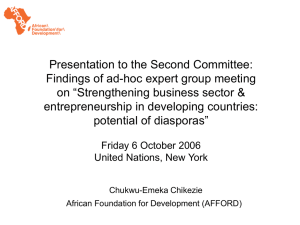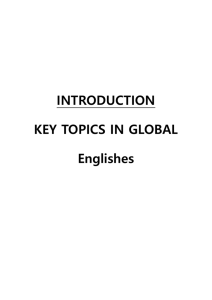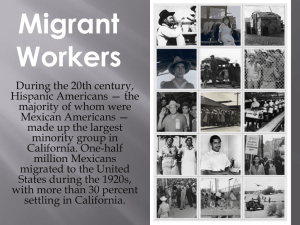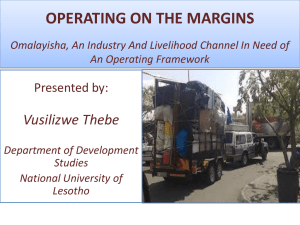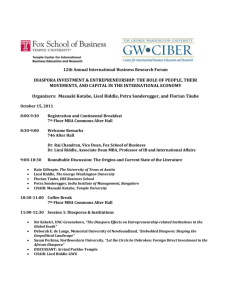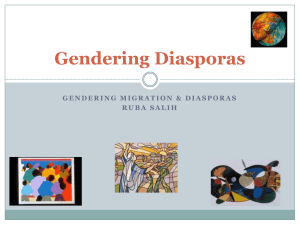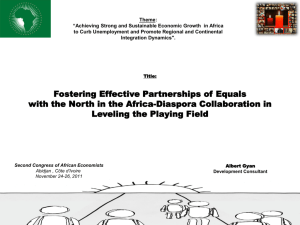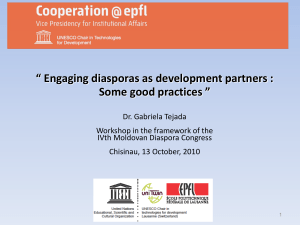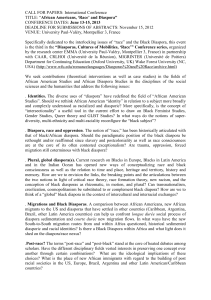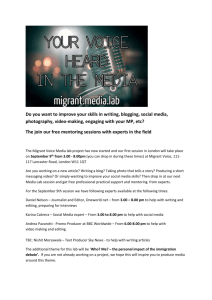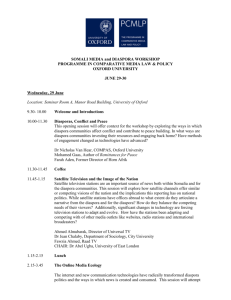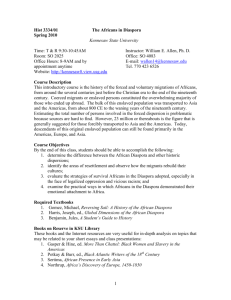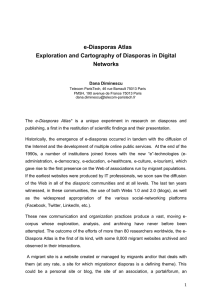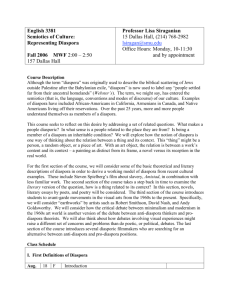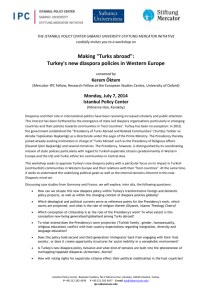3.A job-creation - GFMD Civil Society Days
advertisement
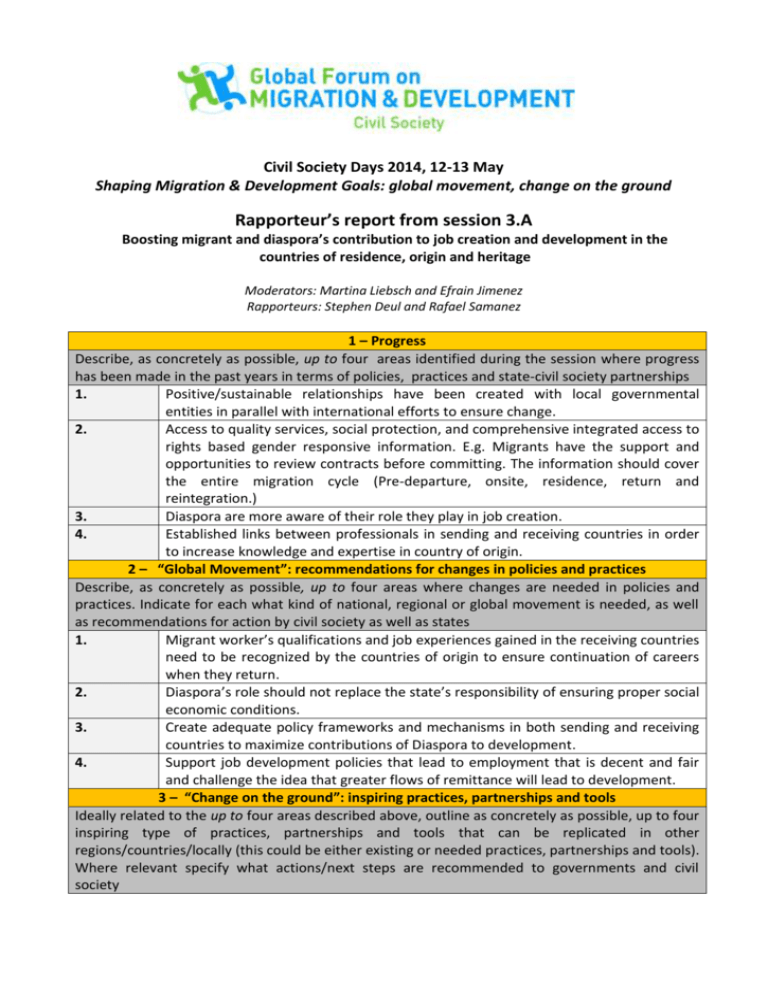
Civil Society Days 2014, 12-13 May Shaping Migration & Development Goals: global movement, change on the ground Rapporteur’s report from session 3.A Boosting migrant and diaspora’s contribution to job creation and development in the countries of residence, origin and heritage Moderators: Martina Liebsch and Efrain Jimenez Rapporteurs: Stephen Deul and Rafael Samanez 1 – Progress Describe, as concretely as possible, up to four areas identified during the session where progress has been made in the past years in terms of policies, practices and state-civil society partnerships 1. Positive/sustainable relationships have been created with local governmental entities in parallel with international efforts to ensure change. 2. Access to quality services, social protection, and comprehensive integrated access to rights based gender responsive information. E.g. Migrants have the support and opportunities to review contracts before committing. The information should cover the entire migration cycle (Pre-departure, onsite, residence, return and reintegration.) 3. Diaspora are more aware of their role they play in job creation. 4. Established links between professionals in sending and receiving countries in order to increase knowledge and expertise in country of origin. 2 – “Global Movement”: recommendations for changes in policies and practices Describe, as concretely as possible, up to four areas where changes are needed in policies and practices. Indicate for each what kind of national, regional or global movement is needed, as well as recommendations for action by civil society as well as states 1. Migrant worker’s qualifications and job experiences gained in the receiving countries need to be recognized by the countries of origin to ensure continuation of careers when they return. 2. Diaspora’s role should not replace the state’s responsibility of ensuring proper social economic conditions. 3. Create adequate policy frameworks and mechanisms in both sending and receiving countries to maximize contributions of Diaspora to development. 4. Support job development policies that lead to employment that is decent and fair and challenge the idea that greater flows of remittance will lead to development. 3 – “Change on the ground”: inspiring practices, partnerships and tools Ideally related to the up to four areas described above, outline as concretely as possible, up to four inspiring type of practices, partnerships and tools that can be replicated in other regions/countries/locally (this could be either existing or needed practices, partnerships and tools). Where relevant specify what actions/next steps are recommended to governments and civil society 1. 2. 3. 4. 1. 2. 3. 4. Creating social dialogue network to increase participation and coordination to address issues with governments. Public education to improve perception of returning migrants as contributing members of society. Lobby focused on inclusive policies between integration and development to build stronger migrant communities that can contribute more to development in countries of origin. Organization of Diaspora at the local, national and international levels are necessary to ensure its inclusion in the Post 2015 Agenda. 4 – Targets and indicators Observatory to collect data to measure the true impact of migrant and their contributions, including the positive and negative impact on the sending and receiving countries. Ad-hoc efforts are good, but should be in addition to a centralized system. Creation of jobs that are decent and fair through development policies will be a measuring factor that this is functioning well. Migrant Rights and Diaspora sectors need to work together to transform public policies in both sending and receiving countries. The overemphasis by corporations and governments on remittances as a primary solution to these social problems needs to be challenged. Diaspora and migrant rights organizations need to work together to advocate for better policies that place responsibility on governments and corporations, not the migrants. Countries of origin should strive to decrease remittances as an essential factor for development. 5. Inspiring quotes If you think you are too small to make a change, you have never been in a room with a mosquito
